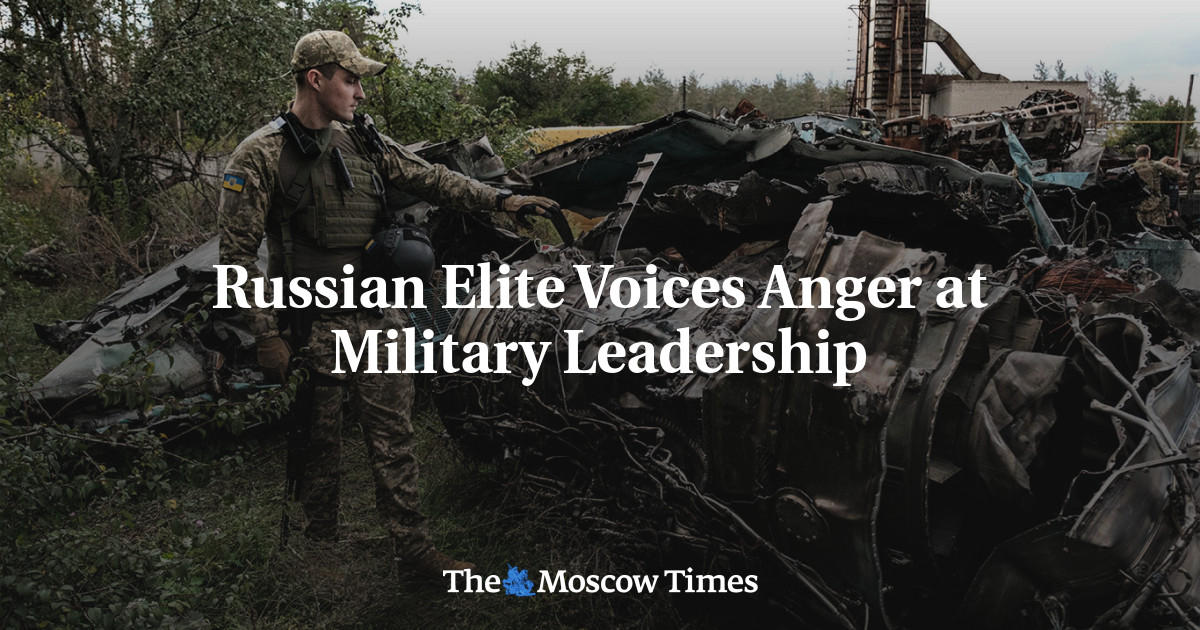
A growing list of failings and defeats in Ukraine have spawned angry outbursts from Russia’s elite, who still support the “military operation” but have gone as far as to suggest army chiefs should face the firing squad.
Before September saw a series of battlefield reversals, public criticism of the army was rare.
The offensive had been presented as a sacred, patriotic mission and speaking ill of the armed forces could lead to a long stay in prison.
Today, nobody among the elite is calling into question the merits of Moscow’s viewpoint or the operation against a neighboring nation.
But the military setbacks and problems over the mobilization of hundreds of thousands of reservists have led usually quiet public figures to attack the military hierarchy.
On Wednesday, the head of the lower house of parliament’s defense committee, said the army should “stop lying,” as daily briefings praise enormous losses supposedly suffered by Ukrainian forces without mention of Russian troop reversals.
“The people know. Our people are not stupid,” warned former general Andrei Kartapolov.
“And they see that we do not want to tell them even part of the truth. That can lead to a loss of credibility,” he told the online show of star presenter Vladimir Solovyov, an ultra-patriot.
Solovyov, who is under EU sanctions, said certain members of the army’s top ranks deserved to face a firing squad.
“The guilty should be punished, we don’t have capital punishment unfortunately, but for some of them it would be the only solution.
“They don’t even have an officer’s sense of honor because they are not shooting themselves,” he said.
For celebrity war reporter Alexander Kots, writing on his Telegram channel, “There won’t be any good news [from the front] in the near future.”
The verbal assaults and an air of defeatism were all the more striking when President Vladimir Putin celebrated the annexation of four Ukrainian regions with a concert on Moscow’s Red Square.
“Victory will be ours,” blared the president from a giant video screen amid a sea of Russian flags.
None of the criticism has directly targeted the all-powerful head of state, or even his defense minister Sergei Shoigu.
But when Chechen leader Ramzan Kadyrov hit out at Russia’s generals, urging the use of nuclear weapons and hinting Putin had been ill-informed, the Kremlin had to react.
Kremlin spokesperson Dmitry Peskov responded, saying: “In difficult moments, emotions must be excluded … We prefer to make measured and objective evaluations [of the situation].”
Putin was moved to admit publicly to “errors” in the effort to mobilize reservists after an avalanche of documented cases of people without army experience being called up to the front.
Russia’s political opposition has been virtually wiped out with its main leader Alexei Navalny in jail.
What remains of the opposition operates mostly from abroad and is attempting to rebuild within Russia amid hopes of riding popular discontent.
“The millions of people who remain in Russia are hostages of Putin and do not want to fight,” said Navalny ally Leonid Volkov, who announced on YouTube the re-launch of an activist network in the nation’s regions.
“The struggle can take different forms, with different levels of risk – we can put out information, offer legal aid, do voluntary work or sabotage the work of military commissariats, some of which burn very well,” he noted.